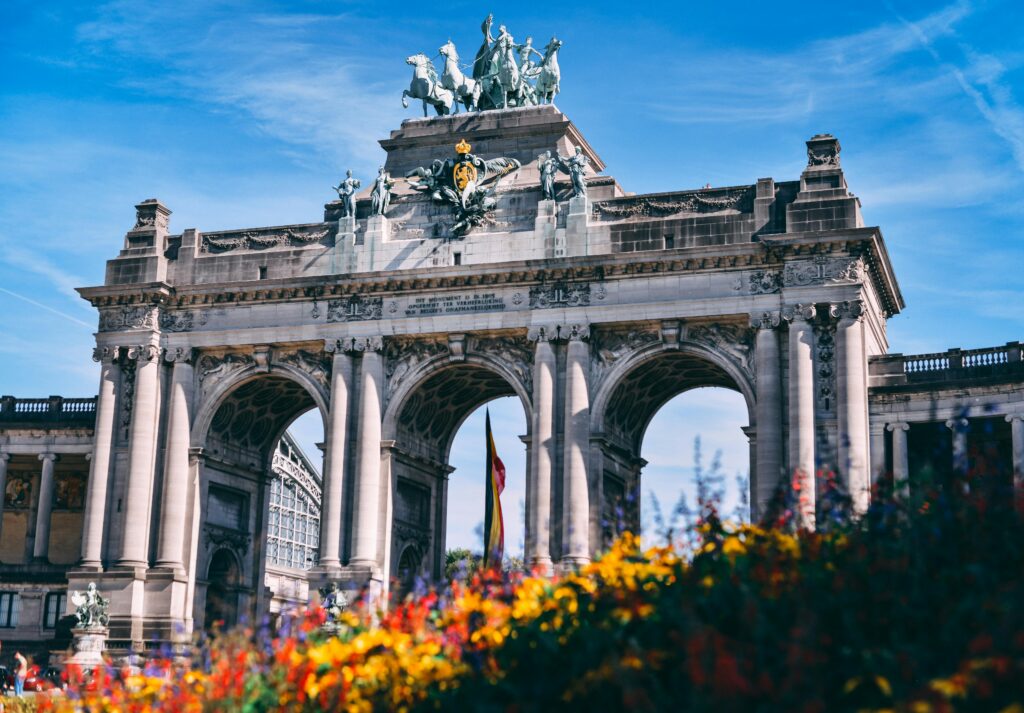A deadly shooting sent shockwaves through Brussels on Friday night as two armed men fired automatic weapons near Clemenceau metro station in the Anderlecht district. The sudden attack caused panic, forcing terrified pedestrians to flee in all directions, with some seeking refuge inside metro tunnels. Police swiftly arrived at the scene and launched an investigation to determine whether the attack was linked to ongoing gang violence in the area.
A City Struggling with Rising Violence
Brussels has witnessed a worrying surge in violent crime in recent months. Just last week, four separate shootings were reported across the city, leaving one person dead and multiple others injured. Many of these incidents occurred near the South Station, one of Brussels’ busiest transport hubs. Authorities suspect that these violent events stem from a power struggle between rival drug gangs competing for control of illegal trade routes in the region.
Mayor Fabrice Cumps addressed the crisis, describing the escalating violence as “a brutal battle between criminal networks.” He emphasized that law enforcement agencies have been working tirelessly to curb gang-related activities in Anderlecht, a district that has become a hotspot for drug trafficking and organized crime.
Police Under Pressure Amid Government Crackdown
Belgium’s newly elected government, led by Prime Minister Bart De Wever, has pledged a strict crackdown on drug-related crime. The administration introduced new measures to dismantle criminal organizations and increase police presence in high-risk areas. However, the recent wave of shootings raises serious concerns about the effectiveness of these policies.
According to police reports, Brussels recorded 92 shootings in 2024 alone. These violent confrontations resulted in nine deaths and 48 injuries. The alarming statistics highlight the severity of the problem and the challenges authorities face in restoring security to the city’s streets.
Public Anxiety Grows as Shootings Continue
With gun violence escalating, fear and uncertainty are spreading among residents. Many locals feel unsafe in their own neighborhoods and question whether authorities can regain control of the situation. Increased police patrols and security operations have been implemented, but the impact remains to be seen.
For many Brussels residents, the surge in violence has changed daily life. Parents are increasingly worried about their children’s safety, particularly in areas known for gang activity. Local businesses also suffer, as customers hesitate to visit areas perceived as dangerous.
The Fight Against Organized Crime
Authorities believe that much of the violence stems from international drug smuggling operations. Brussels, due to its central location in Europe, has become a major transit point for narcotics. Criminal organizations from different countries use the city as a key hub, leading to frequent clashes over territory and profits.
To combat these threats, law enforcement officials are working closely with Europol and neighboring countries to track criminal networks. Recent raids have resulted in multiple arrests and significant drug seizures. However, experts argue that a long-term strategy is needed, including social programs to prevent young people from being recruited into gangs.
Looking Ahead: Can Brussels Restore Order?
As Belgium’s government intensifies its crackdown on crime, residents hope for meaningful changes that will bring lasting peace to their communities. Political leaders face mounting pressure to deliver on promises of safety and security, while law enforcement continues its efforts to dismantle criminal networks.
The New York Mirror will continue to follow developments in Brussels as the city grapples with these challenges. For more world news updates, visit New York Mirror.


